Royal Society Publishing Early Career Researcher Advisory Panel
Introducing the ECR Advisory Panel who are shaping the future of scientific communication
The ECR Advisory Panel is a group of early career researchers from diverse scientific and geographic backgrounds who work remotely with each other and the Royal Society Publishing team. They help shape publishing policies and participate in projects that impact researchers worldwide. The panel meets virtually four times a year, offering members valuable opportunities to network with peers, editors, and publishing professionals, and to influence how science is communicated and published.
Meet the panel

Alina Arulsamy
Dr Alina Arulsamy is a neuroscientist and a senior research lecturer at Jeffrey Cheah School of Medicine and Health Sciences, Monash University Malaysia, specializing in epilepsy and traumatic brain injury research. She heads the Neuropharmacology Research Laboratory and leads a core team under the Neuroscience Research Strength. She graduated from her PhD at the University of Adelaide, Australia. She is actively involved in epilepsy awareness and is currently the Honorary Secretary of the Malaysian Epilepsy Society and an executive committee member of the Epilepsy Council of Malaysia. She is also an active Young Epilepsy Society member under the International League Against Epilepsy (ILAE) and an active member of the Young Scientist Network of Malaysia.
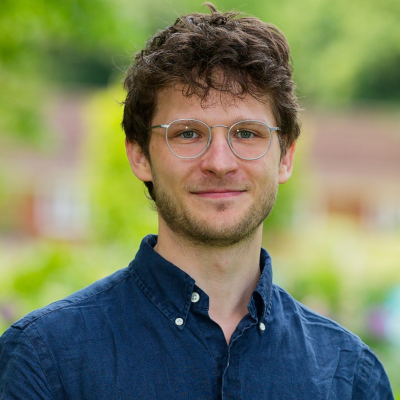
Leonid Digel
Leonid Digel is a Carlsberg Foundation Postdoctoral Fellow at the University of Cambridge. Leonid's scientific interests revolve around the field of electromicrobiology, including microbial physiology and ecology, bioelectrochemistry and structural biology. His current research in the group of Jenny Zhang focuses on extracellular electron transfer between cyanobacteria and other electroactive microorganisms. Leonid has previously worked at the Center for Electromicrobiology in Aarhus, Denmark, where he studied cable bacteria – nature's living electric wires.

Mahan Ghafari
Mahan Ghafari is a Wellcome Trust Early Career Research Fellow and Independent Investigator leading the Ghafari Research Group in the Department of Biology, University of Oxford, and a member of the Pandemic Sciences Institute’s Data Analytics & Epidemiology section. He is interested in developing methods to reconstruct evolutionary histories of high-consequence pathogens. His research combines phylogenetics, population genetics, and structural bioinformatics to quantify molecular evolutionary dynamics of pathogens across hosts and over time. With a background in physics and computational biology, he develops open and accessible methods to improve outbreak dating and strengthen pandemic preparedness.
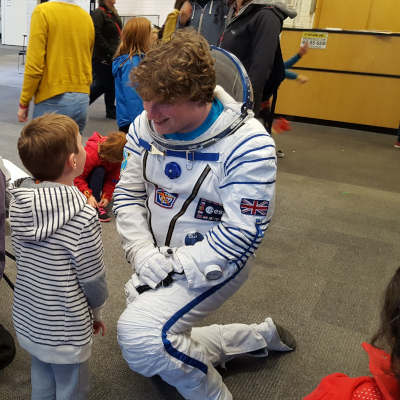
James Lees
Dr James Lees is Physicist who has worked across a range of areas including Astrophysics, Nuclear, and Advanced Drug Delivery but primarily within Condensed Matter Physics. Working as a lecturer he specialises in nanofabrication and characterization particularly in the use of Scanning Thermal Microscopy. Alongside his academic career, he is an active science communicator writing books, delivering workshops and training as well as serving on national panels for STFC and the Institute of Physics, this work has been recognised by the awarding of the Mary Somerville Medal.
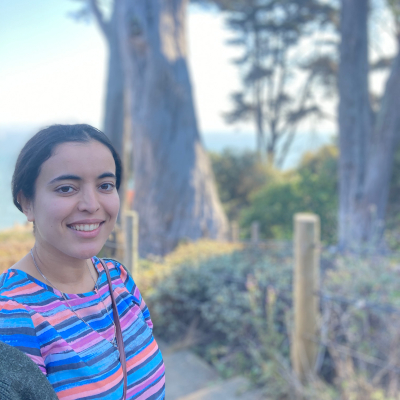
Halima Malal
Halima is a postdoctoral researcher in the Department of Land, Air, and Water Resources at UC Davis, leading a project investigating vermicompost's impact on soil health and plant growth across 12 perennial and annual field sites in California and Washington. Originally from Morocco, she is passionate about environmental sustainability and sustainable agriculture. She earned her PhD in Environmental Science from Ibn Zohr University in Morocco, focusing on the effects of vermicompost on soil microbiomes in semi-arid regions, while serving as a Fulbright visiting scholar at UC Davis. Her work develops evidence-based recommendations helping farmers enhance soil health while reducing synthetic inputs.
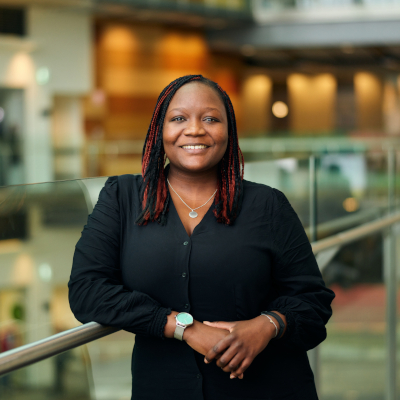
Tapoka Mkandawire
Dr Tapoka Mkandawire is a Senior Research Scientist at Mars, where she explores the microbiome to drive innovation in pet health. She previously completed a postdoc at the Francis Crick Institute, developing methods to improve sequencing of the intestinal parasite Cryptosporidium across research, clinical, and environmental samples; advancing researchers’ ability to detect and study this challenging organism. With a background spanning molecular biology, bioinformatics, and biotech consulting, Tapoka is passionate about translating scientific discoveries into practical biotech solutions and delivering impactful insights. She is also a strong advocate for science communication, public engagement, and equity in science and innovation.

Michelle Teo Yee Mun
Dr. Michelle Teo Yee Mun is an Assistant Professor at UCSI University, Malaysia, with research expertise in molecular oncology and antibody engineering. Her projects explore novel immunotherapies, antibody-drug conjugates, and vaccine platforms, supported by national and institutional grants. She has published widely in peer-reviewed journals and serves as an Academic Editor and active peer reviewer across international journals. Beyond her research, Dr. Teo is active in championing research integrity and responsible conduct of research through the Young Scientist Network–Academy of Sciences Malaysia. She is passionate about strengthening the scientific publishing ecosystem and supporting the visibility of early-career researchers.
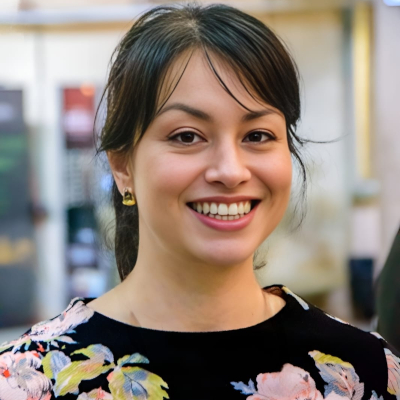
Jaqueline Nichi
Jaqueline Nichi is a Brazilian researcher with a PhD in Environment and Society from the State University of Campinas and a Master’s degree in Sustainability from the University of São Paulo. Her research interests include multilevel governance, climate policy, sustainable urban planning, and socio-technical transitions to sustainability. As a Social scientist and journalist, she has extensive experience in environmental journalism and science communication, strengthening her expertise at the intersection of science, policy, and society. Her work has contributed to both academic discourse and public engagement, with involvement in blogs, policy dialogue, and applied research.
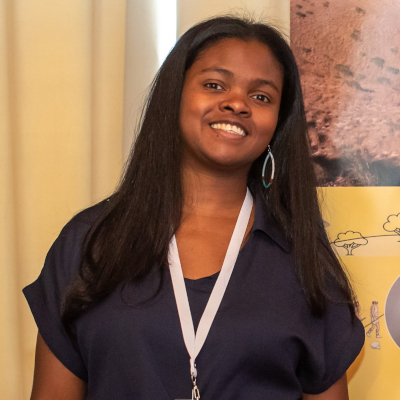
Estelle Razanatsoa
Estelle Razanatsoa is a Research Fellow at the University of Cape Town and a Lead Author for the IPCC 7th Assessment Report (WGII). Her research examines the dynamics of African biomes and biodiversity by studying long-term interactions between ecosystems, people, and climate. She investigates vegetation change, ecological, and social feedback to understand resilience and inform pathways for sustainable resource use. Drawing on interdisciplinary approaches, Estelle bridges ecology, palaeoecology, modelling and climate science with policy engagement, collaborating with communities, conservation practitioners, and policymakers to co-develop strategies that support biodiversity conservation and sustainability.
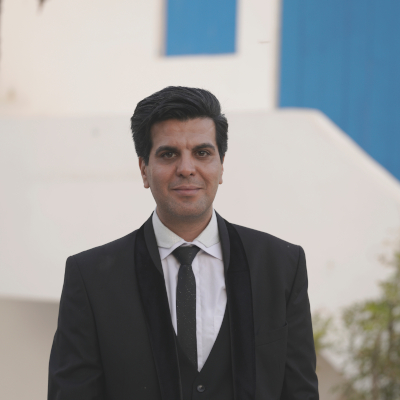
Saied Sabaghypour
Dr. Saied Sabaghypour is a postdoctoral researcher in Cognitive Neuroscience at Western University, Canada. His work focuses on the electrophysiological mechanisms of cognition, with a particular interest in how sleep supports memory consolidation. He is currently investigating closed-loop auditory stimulation during deep sleep as a potential intervention to improve memory. He also has broader research interests in numerical cognition, embodied cognition, and the interaction between emotion and higher-level cognitive processes. His expertise spans research design, EEG/ERP analysis, and computational approaches. Beyond his research, he is active in science communication and education, aiming to bridge neuroscience research with public understanding and training.

Yie Hua Tan
Dr. Yie Hua Tan is a Lecturer in Chemical and Energy Engineering at Universiti Teknologi Brunei (UTB). She is a Chartered Engineer (CEng MIChemE), ASEAN Chartered Professional Engineer (ACPE), and Professional Engineer registered with the Board of Engineers Malaysia (BEM). Her research focuses on biomass utilisation, biofuel conversion technologies, catalysis development, process optimisation, and waste management. Recognised among the world’s Top 2% Scientists by Stanford University 2023-2025, she has received multiple national and international awards for research excellence and innovation. Her work focuses on advancing sustainable technologies for renewable energy and environmental protection through innovative catalytic and process engineering approaches.
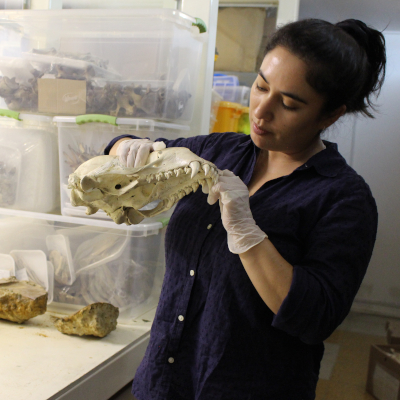
Ana Valenzuela
Ana is a Chilean paleobiologist at CIAHN Atacama, a public–private research institution in Chile. She earned her PhD in Ecology and Evolutionary Biology from the University of California, Santa Cruz, and is an Associate Researcher at the Smithsonian Institution’s National Museum of Natural History. Her research focuses on the paleoecology and evolutionary history of marine mammals, integrating fieldwork, museum collections, stable isotope analysis, and comparative morphology, and she has published nearly 30 peer-reviewed articles. Beyond her primary research, Ana is committed to fostering inclusivity in science and education, contributing to initiatives and publications on equity and diversity in academia.
Are you an early career researcher?
At the Royal Society, we offer a variety of dedicated resources to support early career researchers, from grant schemes and journal initiatives to competitions and scientific meetings. Visit our ECR Hub to find out more.
